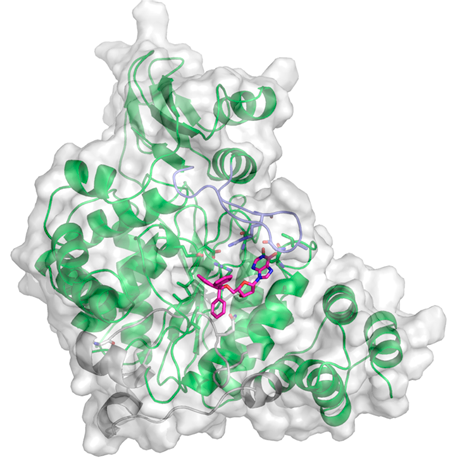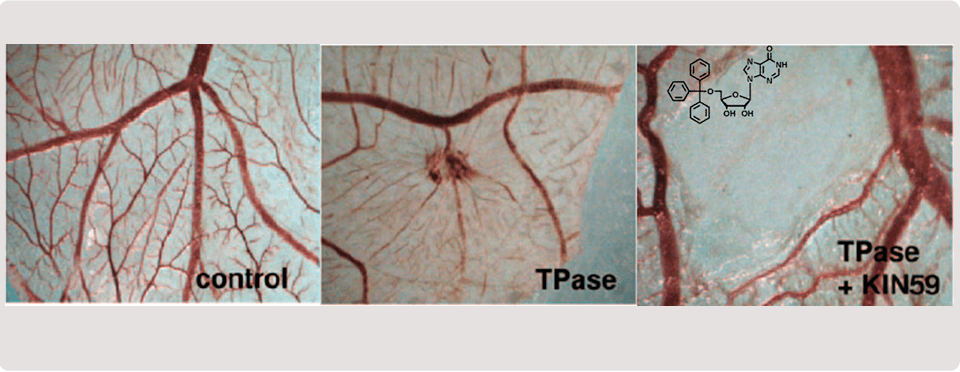THYMIDINE PHOSPHORYLASE AND ANGIOGENESIS

Thymidine Phosphorylase (TPase) is an enzyme involved in the salvage pathway of pyrimidine nucleosides. Nowadays, there is a renewed interest in this enzyme due to its implication in angiogenesis and its correlation with an aggressive development of certain tumours. Our research group has described and published different and unique families of inhibitors including 7-deazaxanthine, the first described TPase multisubstrate inhibitors, exemplified by TP65, and 5’-O-trytilinosine (KIN59) as an allosteric inhibitor. The TPase allosteric inhibitors based on KIN59 show a potent antiangiogenic effect in the CAM assay, with the appearance of an avascular zone and no toxicity to the developing chick embryo. This compound has been and still is under additional antiangiogenic and antitumoral studies.
Relevant publications:
-
2012 - Liekens, S.; Bronckaers, A.; Bellerim M.; Bugatti, A.; Sienaert, R.; Ribatti, D.; Nico, B.; Gigante, A.; Casanova, E.; Opdenakker, G.; Pérez-Pérez, M. J.; Balzarini, J.; Presta, M.
The thymidine phosphorylse inhibitor 5´-O-tritylinosine (KIN59) is an angiogenic multitarget fibroblast growth factor-2 antagonist. Mol. Cancer Ther. 2012 Mar 23 (Epub ahead of print)
-
2009 - Bronckaers, A.; Aguado, L.; Negri, A.; Camarasa, M. J.; Balzarini, J.; Pérez-Pérez, M. J., Gago, F.; Liekens, S.
Asp203 in human thymidine phosphorylase as an important residue for both catalysis and non-competitive inhibition by the small “crystallization chaperone” 5´-O-tritylinosine (KIN59).

